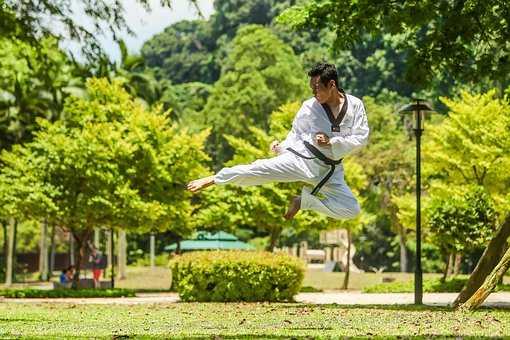Kung Fu for Philosophers
Curated from: opinionator.blogs.nytimes.com
Ideas, facts & insights covering these topics:
6 ideas
·2.64K reads
17
Explore the World's Best Ideas
Join today and uncover 100+ curated journeys from 50+ topics. Unlock access to our mobile app with extensive features.
Martial arts is not just about fighting
A common misunderstanding about martial arts: Many people think martial arts is about fighting, but it is really about improving your wisdom and intelligence.
Any ability resulting from practice and improvement could embody kung fu for example. There is a kung fu of dancing, painting, cooking, writing, dealing with people, and even governing. The broad understanding of kung fu is one key to understanding traditional Chinese philosophy.
99
747 reads
How to live one's life
The chief orientation of traditional Chinese philosophy is about how to live one's life instead of finding out the truth about reality.
The well-known question posed by Zhuangzi in the 4th century B.C. - was he Zhuangzi who had dreamt of being a butterfly, or was he a butterfly dreaming he was Zhuangzi? - was an epistemological question. Zhuangzi realised that he had perceived the "transformation of things", meaning one should go along with this transformation, not search for what is real.
83
496 reads
The performing function of language
Confucius's call for "rectification of names" - using words appropriately - is a kung fu method for securing sociopolitical order, as "names" are placeholders for expectations of how the bearer of the names should behave and be treated.
Mencius and Xunzi's views about human nature are recommendations of how one should view oneself to become a better person, not metaphysical assertions about whether humans are by nature good or bad.
78
367 reads
The Buddhist doctrine of no-self
According to the Buddhist doctrine, the no-self doctrine aims to free one from suffering since suffering comes from attachment to the self.
Buddhist meditations are kung fu practices to leave one's attachment behind.
79
413 reads
Chinese kung fu a form of pragmatism
Western philosophers such as Socrates, the Stoics and the Epicurians mainly were concerned with virtue to live a good life. Similarly, classic Chinese philosophy calls our attention to a dimension that transcends the obsession with searching for eternal, universal truth and practising it through rational arguments.
The kung fu perspective adds a clear emphasis on the cultivation and transformation of the person. A good action must be rooted in the entire person, and goodness is shown through its consequences and artistic style.
72
300 reads
Aristotelian and Confucian virtue ethics
Aristotelian virtue ethics focuses on the cultivation of the agent instead of the making of rules of conduct. The kung fu approach shares this view, but the process of ethics does not rely on any metaphysics for justification.
The person who follows the Aristotelian metaphysics will put more effort into cultivating her intelligence, where a person who follows the Confucian relational metaphysics will focus on learning rituals that harmonize with interpersonal relations. This view allows for multiple competing visions of excellence.
79
322 reads
IDEAS CURATED BY
Isie Mckee's ideas are part of this journey:
Learn more about personaldevelopment with this collection
Improving sleep through mindful breathing exercises
Practicing stress reduction and relaxation techniques
Establishing a relaxing bedtime routine
Related collections
Similar ideas
6 ideas
4 ideas
What Is Nihilism | Philosophy Definition
daydreamerlive.com
2 ideas
The untold truth of Bruce Lee
grunge.com
Read & Learn
20x Faster
without
deepstash
with
deepstash
with
deepstash
Personalized microlearning
—
100+ Learning Journeys
—
Access to 200,000+ ideas
—
Access to the mobile app
—
Unlimited idea saving
—
—
Unlimited history
—
—
Unlimited listening to ideas
—
—
Downloading & offline access
—
—
Supercharge your mind with one idea per day
Enter your email and spend 1 minute every day to learn something new.
I agree to receive email updates

